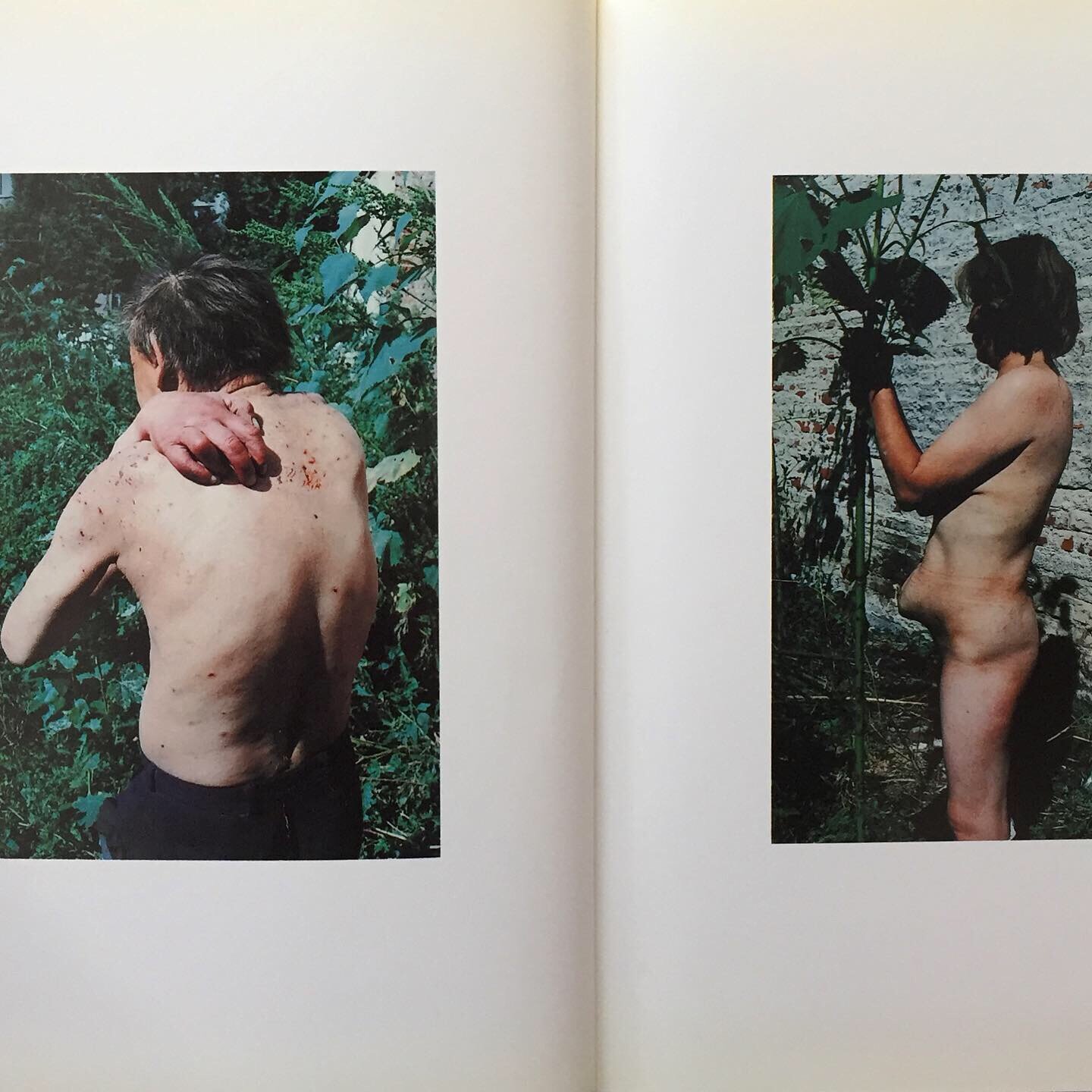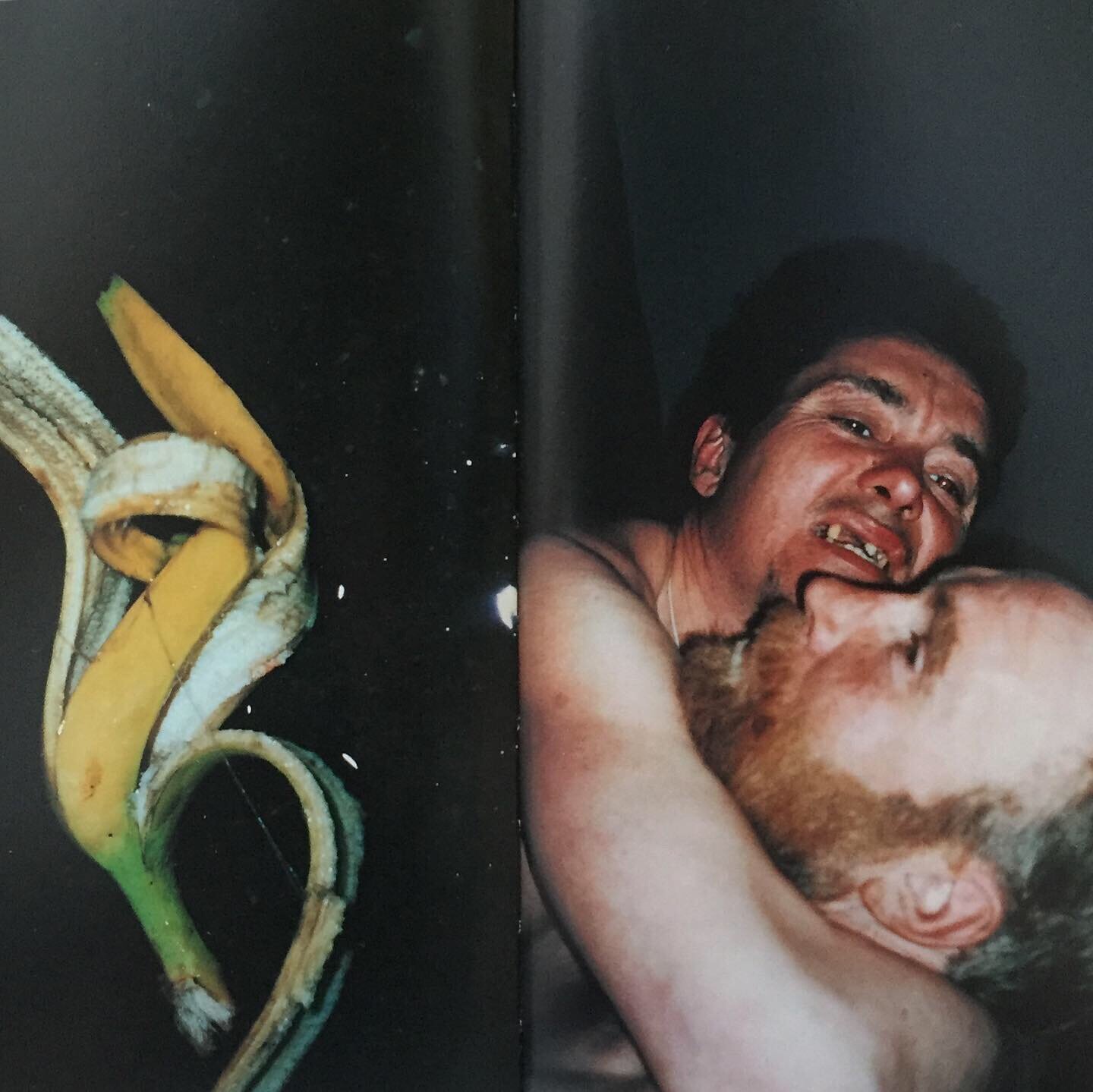Case History by Boris Mikhailov
Mikhailov’s work has been described by Ilya Kabakov as having the effect of ‘some kind of powerful optical infection’. This book presents 481 photographs taken of those left homeless through the rise of a new capitalist oligarchy in Kharkov, the Ukrainian town in which Mikhailov was born.
‘The three of them whose photos are placed in the beginning of the book died within two months. And when I took their photos I had the feeling that it was already impossible to help them all, that it was doomed to happen…
‘The Requiem is the form of presentation in which they allowed me to show them.
‘Or maybe, it was the sign of respect to the woman with an injured blue eye, saving me from innocence?
‘Or maybe, it is somehow a look at the face of the tragedy which happens in different parts of the world and at different times? The look of hopelessness of those forced into perpetual wandering.’
[...]
‘No, I don’t want to spy on those whom nobody would like to see. My touch-request helps the model himself or the situation itself to say “Here I am.”’
First edition, very good condition other than slight wear to the dust jacket. 478 pages. 1999.
Mikhailov’s work has been described by Ilya Kabakov as having the effect of ‘some kind of powerful optical infection’. This book presents 481 photographs taken of those left homeless through the rise of a new capitalist oligarchy in Kharkov, the Ukrainian town in which Mikhailov was born.
‘The three of them whose photos are placed in the beginning of the book died within two months. And when I took their photos I had the feeling that it was already impossible to help them all, that it was doomed to happen…
‘The Requiem is the form of presentation in which they allowed me to show them.
‘Or maybe, it was the sign of respect to the woman with an injured blue eye, saving me from innocence?
‘Or maybe, it is somehow a look at the face of the tragedy which happens in different parts of the world and at different times? The look of hopelessness of those forced into perpetual wandering.’
[...]
‘No, I don’t want to spy on those whom nobody would like to see. My touch-request helps the model himself or the situation itself to say “Here I am.”’
First edition, very good condition other than slight wear to the dust jacket. 478 pages. 1999.
Mikhailov’s work has been described by Ilya Kabakov as having the effect of ‘some kind of powerful optical infection’. This book presents 481 photographs taken of those left homeless through the rise of a new capitalist oligarchy in Kharkov, the Ukrainian town in which Mikhailov was born.
‘The three of them whose photos are placed in the beginning of the book died within two months. And when I took their photos I had the feeling that it was already impossible to help them all, that it was doomed to happen…
‘The Requiem is the form of presentation in which they allowed me to show them.
‘Or maybe, it was the sign of respect to the woman with an injured blue eye, saving me from innocence?
‘Or maybe, it is somehow a look at the face of the tragedy which happens in different parts of the world and at different times? The look of hopelessness of those forced into perpetual wandering.’
[...]
‘No, I don’t want to spy on those whom nobody would like to see. My touch-request helps the model himself or the situation itself to say “Here I am.”’
First edition, very good condition other than slight wear to the dust jacket. 478 pages. 1999.









